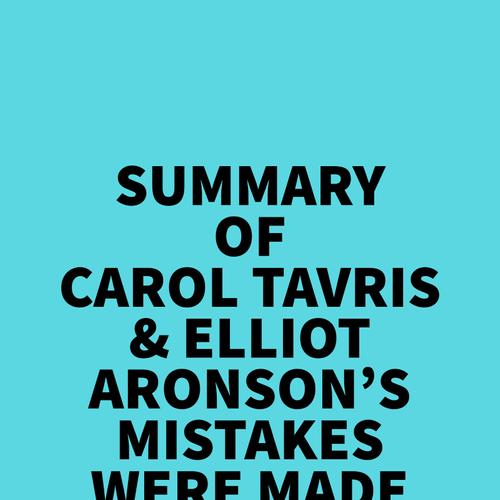Please note: This is a companion version & not the original book.Sample Book Insights: #1 Half a century ago, a young social psychologist named Leon Festinger and two associates infiltrated a group of people who believed the world would end on December 21. They wanted to know what would happen to the group when the prophecy failed.#2 Self-justification is the process by which we find ways to reduce cognitive dissonance, which is a state of tension that occurs when we hold two cognitions that are contradictory, such as Smoking is a dumb thing to do, but I do it anyway.#3 The theory of dissonance states that when people go through a great deal of pain, discomfort, effort, or embarrassment to obtain something, they will be happier with that something than if it came to them easily. This is because they will have tried to justify their actions, and their cognition that they are a sensible and competent person is dissonant with their cognition that they went through a painful procedure to obtain something.#4 The beauty of an experiment is the random assignment of people to conditions. Regardless of a person's initial interest in joining a group, they would be randomly assigned to either the severe-initiation or the mild-initiation condition.
